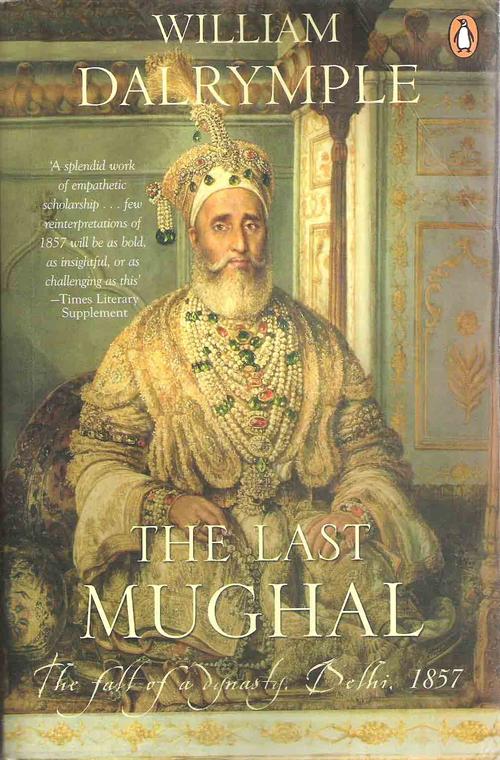Short background about the author
"William Dalrymple understands India, Indian history and his readers in
ascending order. That is what makes him a very good writer and a reasonably sound historian writing on South Asia. The fact that his writing is not determined by academic exigencies such as the pressures of a thesis, the load of a prejudice or the hassles of artificial deadlines allows him the supreme freedom of choosing a topic and going all out to collect sources. And the fact that he deliberately writes for a larger audience than the incestuous circle of South Asian historians, allows him to present history in a form that is at once not intimidating to the layman and very challenging to the more professional practitioner of the craft.
"The Last Mughal"
It is a biography of the last Mughal Emperor (that is the romantic side of Dalrymple) but it is firmly rooted in the social, political and cultural changes of the times (that is the historian and the story teller in Dalrymple). It is a voluminous book, but its essence both as a literary and a history treatise can be captured a few short paragraphs:
1. It fills up a major lacuna in the historiography of India in the
sense that it supplements the works of Erick Stokes (for Northwestern
Provinces, modern UP) and Rudrangshu Mukherjee (Awadh) among others,
who have undertaken in depth regional studies to bring to light the complexities
of the Uprising of 1857. Before "The Last Mughal" Delhi was, rather, strangely, left out of such in depth treatment.
2. For less strange reasons, Bahadur Shah Zafar never enjoyed the
attention that his more illustrious forefathers received from Indian historians. Although, in many senses, he presided and lived through over a complex socio-political transformation that few of his predecessors except perhaps Babur did. Dalrymple successfully puts the focus back on this "black sheep" of the family.
3. Finally, and this is very important, Dalrymple clearly shows how complicated simple social divisions like class, caste, race, gender and loyalties were before, during and immediately after the mutiny.
4. In terms of substance, the book is rich is use of sources, nuanced in its arguments and very textured in the way that arguments and substantiation are knitted together.
From a historian's perspective:
Another new regional study on the events of 1857 - filling up a major void; unearthing of new sources - another big contribution to the historiography. But nothing new in terms of argument. Believe you me, we already knew the broader arguments around race and religion. In fact, Dalrymple's extra leap to connect the Jehadis of 1857 to
their current cousins seems like what it really is - a giant and unnecessary leap.
From a reader's perspective: That is the way to write history, each
character stands out on its own. And although it will not be apparent
to an ordinary reader, a trained eye will not miss the hard work that must
have gone to flesh out each character with such meticulous detail. And Oh
boy! What a style of writing - captivating to say the least. It does read like a
best selling thriller.
Lessons for the historian: "Isn't that the way we should write our
history so that more and more people read and understand what really happened and how?"








